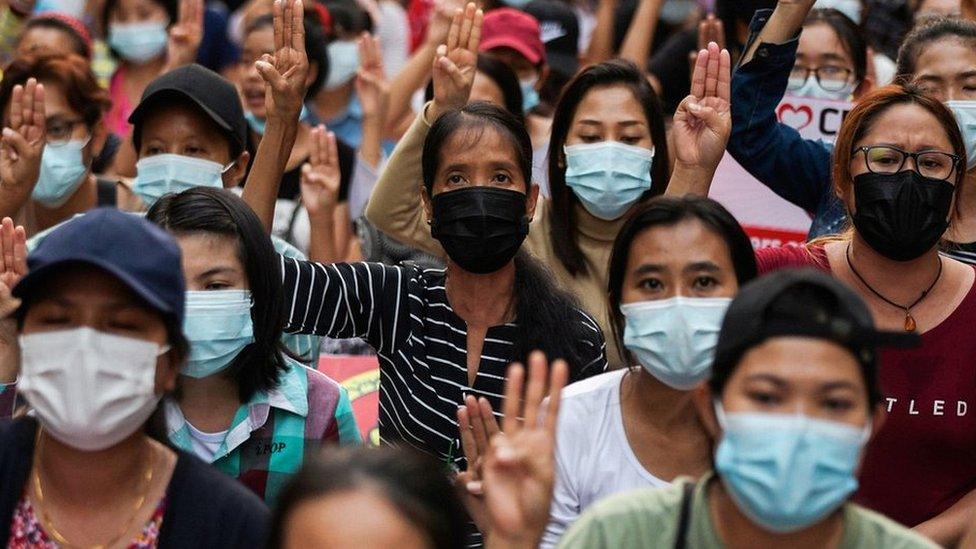Malaysia deports Myanmar nationals despite court order
- Published
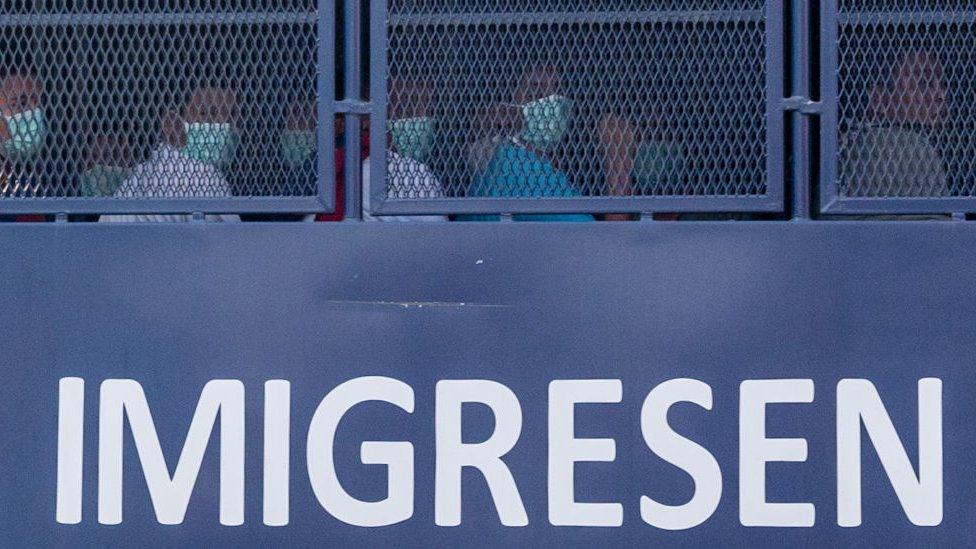
An immigration truck believed to be carrying Myanmar migrants from Malaysia back to their homeland
Malaysia has deported 1,086 people back to Myanmar, defying a court order and appeals from human rights groups to halt the process.
Rights organisations say the group includes some ethnic minorities that have suffered persecution in Myanmar.
They say sending them back to Myanmar, where the army took power in a coup, could put them at even greater risk.
But Malaysia has said those being sent back committed immigration offences, and are not asylum seekers.
The deportation comes as more than 130 NGOs called for an immediate ban on sales of all equipment that could be used for military purposes to Myanmar, also known as Burma, while it remains under military rule.
In an open letter, they said any sale or transfer of equipment to the armed forces could provide the means to further repress the people.
Several countries have already applied sanctions to Myanmar or downgraded diplomatic relations.
But the country's biggest arms suppliers China and Russia have ignored calls for an embargo and will almost certainly refuse to take part in one now, BBC South East Asia correspondent Jonathan Head reports.
Myanmar's neighbours are focusing on diplomacy.
The foreign ministers of Thailand and Indonesia met their military-appointed Burmese counterpart for talks in Bangkok on Wednesday. It was the first known face-to-face meeting between a senior official from Myanmar's military junta and foreign governments.
In a press conference after the meeting, Indonesian Foreign Minister Retno Marsudi told reporters that her government was conducting "intensive" talks with both Myanmar's military and an opposition civilian government formed by ousted lawmakers.
"We ask all parties to exercise restraint and not use violence to avoid casualties and bloodshed," she said.
What happened to the deportees?
The migrants were deported on three Myanmar navy ships from a Malaysian military airbase late on Tuesday, after arriving on packed trucks and buses.
This is despite the Kuala Lumpur High Court earlier issuing a stay to put the deportation on hold pending a hearing on Wednesday.
"All of those returned had agreed to be sent back voluntarily without being forced by any party," Khairul Dzaimee Daud, Malaysia's director-general of immigration, said in a statement.
Mr Daud added that those being repatriated did not include Rohingya refugees or asylum seekers, echoing an earlier statement by Malaysia that it would not deport those registered with the UN High Commissioner for Refugees (UNHCR).
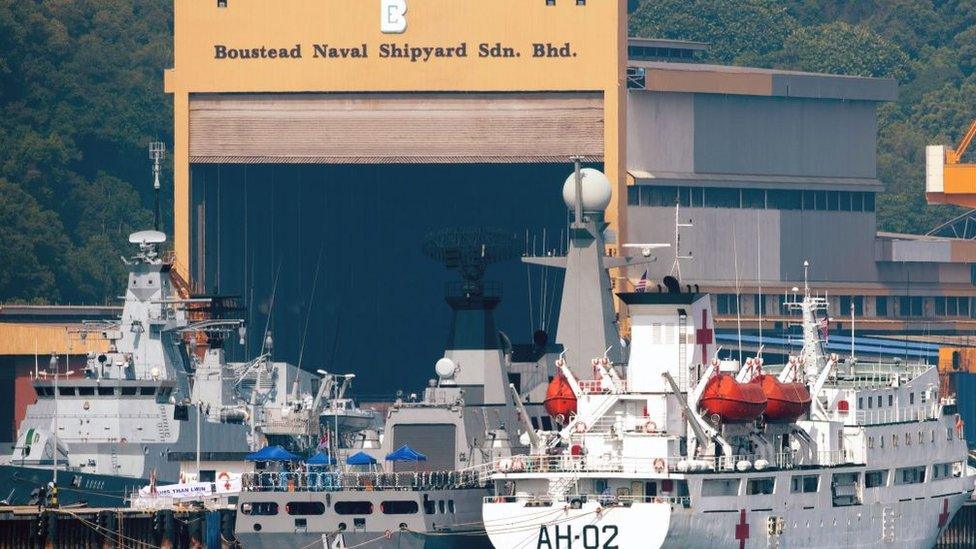
Myanmar vessels UMS Than Lwin (R) and UMS Sin Phyu Shin (C), were scheduled to be used to deport Myanmar migrants
Authorities had earlier said 1,200 detainees were set to be deported - it is not clear why this number eventually decreased.
In a press conference on Wednesday, rights group Amnesty International said the "identity and status" of the remaining 114 people who were not deported was unclear.
"It's unclear why some people were deported and some people were not," said the group. "It's the responsibility of the authorities to answer [such questions]."
Amnesty added that the court order for the deportation to be put on hold would still apply to this group of people.
Why are human rights groups unhappy?
The authorities have blocked the UNHCR from accessing immigration detention centres in Malaysia for more than a year, according to reports - which means the UN is unable to confirm Mr Daud's statement.
"Before sending anyone back to a situation where they could face persecution, the Malaysia government should... ensure that UNHCR has access to detention centres... so the international community can be assured that it is not sending people into harm's way," said rights group Human Rights Watch (HRW).
The UNHCR also added that at least six people registered with the organisation were among the deportees, according to Reuters. Rights groups also say that asylum seekers from the minority Chin and Kachin communities, who are fleeing persecution, are among those being deported.
Phil Robertson, deputy Asia director for HRW, told the BBC that Malaysia had "sent them back into the hands of a military junta known for persecuting those who flee the country for political reasons".
Mr Robertson also called on the immigration department to "end its blockade of UNHCR".
What is going on in Myanmar?
The military took power in a coup on 1 February, ousting Aung San Suu Kyi's elected government and declaring a year-long state of emergency.
Ms Suu Kyi has been placed under house arrest, and charged with possessing illegal walkie-talkies and violating the country's Natural Disaster Law.
From blind-folded protests to dressing like Aung San Suu Kyi, why creatives are concerning Myanmar's army
The move has triggered some of the country's biggest protests in years, but the military have gradually ramped up the use of force with at least three people killed.
Hundreds of thousands turned out in major cities on Tuesday, and protests were continuing on Wednesday.
Some of the country's ethnic minorities were engaged in conflict with the military before the coup, and say they fear renewed violence now that the military is back in power.

Myanmar - the basics
Myanmar, also known as Burma, became independent from Britain in 1948. For much of its modern history it has been under military rule
Restrictions began loosening from 2010 onwards, leading to free elections in 2015 and the installation of a government led by veteran opposition leader Aung San Suu Kyi the following year
In 2017, militants from the Rohingya ethnic group attacked police posts, and Myanmar's army and local Buddhist mobs responded with a deadly crackdown, reportedly killing thousands of Rohingya. More than half a million Rohingya fled across the border into Bangladesh, and the UN later called it a "textbook example of ethnic cleansing"
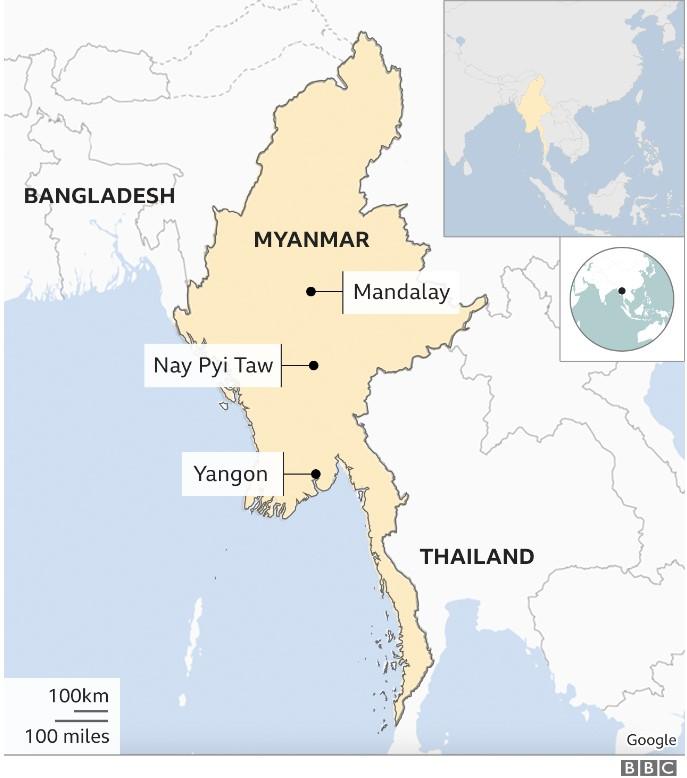

Related topics
- Published22 February 2021
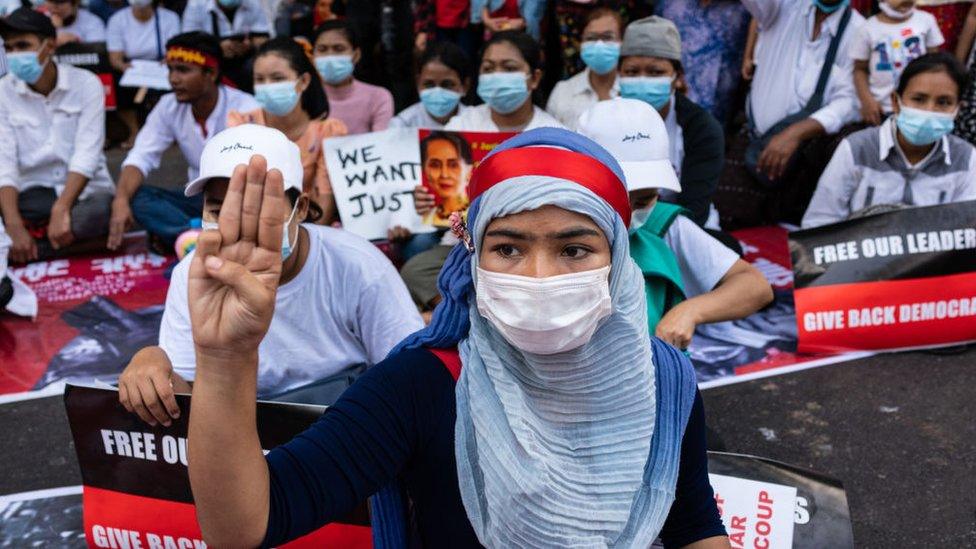
- Published20 February 2021
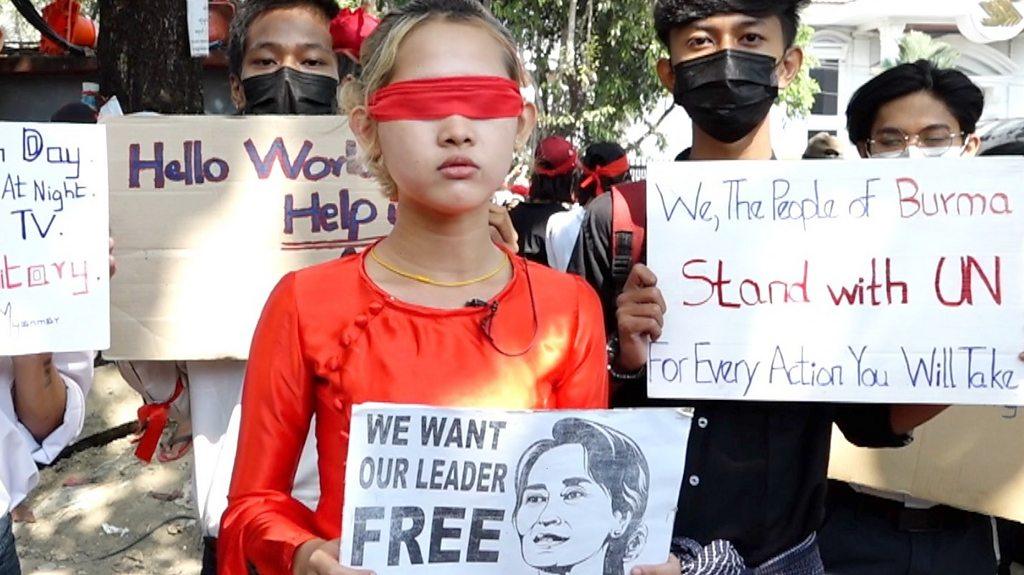
- Published25 July 2022
